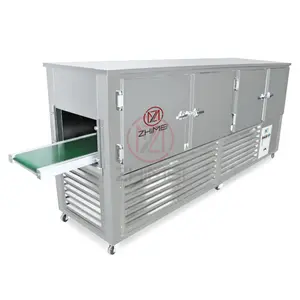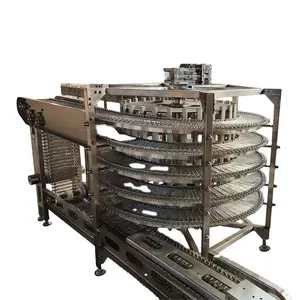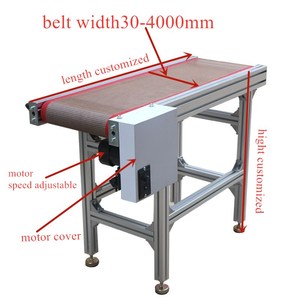Introduction to Cooling Belt Conveyors
In the realm of industrial machinery, cooling belt conveyors play a pivotal role in the efficient transportation of materials while maintaining an optimal temperature. These advanced systems are particularly designed to handle products that require cooling during transit, making them indispensable in various manufacturing processes. Whether in food production, chemical processing, or refrigeration, cooling belt conveyors provide a seamless solution to temperature-sensitive transportation needs.
Types of Cooling Belt Conveyors
There are several types of cooling belt conveyors, each tailored to specific industrial requirements. The main categories include:
- Flat Belt Conveyors: Typically used for transporting solid products, they provide uniform support across the surface.
- Modular Belt Conveyors: Composed of interlocking plastic modules, these allow for greater flexibility and easy maintenance.
- Wire Mesh Belt Conveyors: Ideal for cooling small or irregularly shaped items, fostering airflow and cooling efficiency.
- Sanitary Belt Conveyors: Designed for food processing, these conveyors are built with materials that comply with hygiene regulations and are easy to clean.
Applications of Cooling Belt Conveyors
The applications of cooling belt conveyors are vast and varied, catering to numerous industries. Some of their primary uses include:
- Food Industry: Essential for cooling baked goods, confections, and other temperature-sensitive food items.
- Chemical Manufacturing: Used to cool materials during production processes that generate excessive heat.
- Pharmaceuticals: Helps manage temperature during the manufacturing of temperature-sensitive drugs and compounds.
- Plastic and Rubber Industries: Employed to cool products and prevent warping post-mold release.
Features and Advantages of Cooling Belt Conveyors
Cooling belt conveyors are engineered with specific features that set them apart. The advantages include:
- Temperature Control: Maintains consistent cooling, which is crucial for quality assurance in production.
- Energy Efficiency: Designed to operate with minimal energy consumption while maximizing cooling efficiency.
- Durable Construction: Made from robust materials, which prolong the conveyor's lifespan and reduce maintenance needs.
- Modular Design: Easily customizable to fit varied layouts and operational processes in a facility.
- Reduced Product Damage: The cooling process mitigates heat-related damage, preserving the integrity of sensitive materials.















































































































































































